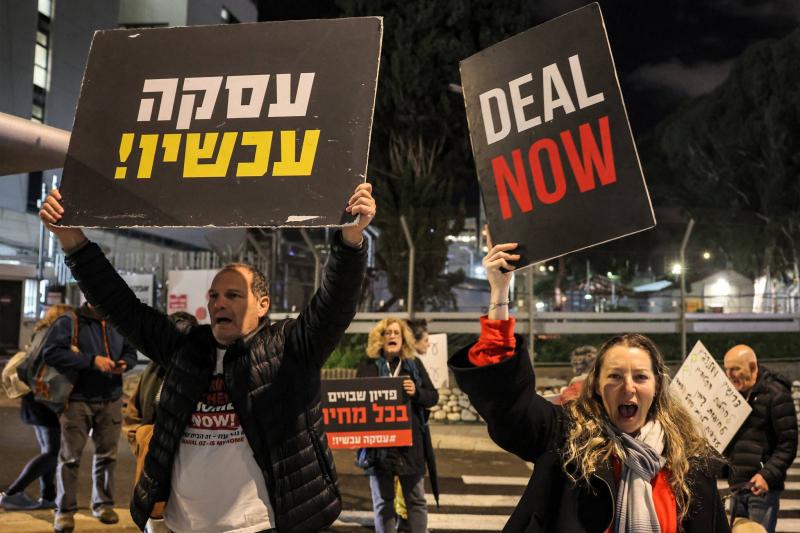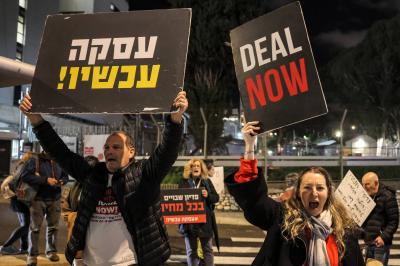Jake Sullivan, the U.S. National Security Advisor, is set to arrive in Israel tomorrow, Sunday, to discuss a range of issues with Israeli leadership, primarily focusing on ceasefire negotiations, prisoner exchange, post-war arrangements in Gaza, military operations in Rafah, and humanitarian aid to the region. This visit occurs amid significant internal disagreements within Israel regarding these matters. Sullivan's visit follows a recent trip by U.S. special envoy Brett McGurk to Doha, where he discussed with Qatari Prime Minister Mohammed bin Abdulrahman Al Thani the resumption of ceasefire and prisoner exchange negotiations that have been stalled due to fundamental disagreements between Israel and Hamas concerning the cessation of hostilities.
### Stalled Negotiations
Indirect negotiations between Hamas and Israel came to a halt about two weeks ago when the Israeli side rejected a proposal put forth by mediators, which had been accepted by Hamas. It was reported that the primary reason for Israel's rejection was that the proposal stated the extended ceasefire, divided into three phases, would culminate in a "sustainable calm" defined as "ceasing military and hostile operations."
### Variance Between Washington and Tel Aviv
Israel presented five objections to the latest proposal approved by the mediators, particularly the U.S. side, concerning the numbers and categories of Israeli hostages and Palestinian prisoners to be released, the principle of a ceasefire, and the principle of lifting the blockade. A Hamas official stated, "Israel tried to reopen the American paper, demanding the release of 33 live Israelis in the first phase and reduced the number of Palestinian prisoners to be released from 50 per Israeli to 30 for a civilian and 40 for a female soldier." The official added, "Israel also requested the right to veto 150 Palestinian prisoners with severe sentences in the exchange," stressing, "They rejected any text discussing the ceasefire and lifting the blockade after the three periods of the ceasefire."
### No Winner or Loser
In an article by military expert Amos Harel in "Haaretz," it was noted that "the main lesson the Washington administration wants to convey to Israel for a long time is that the absolute victory (sought by Netanyahu) has not been achieved for America in Iraq." Harel continued, "Even from the start of the war, when dialogue between America and Israel was much more amicable, senior American officials have expressed serious concerns during discussions with their Israeli counterparts about Israel's potential slide into a repeat of Iraq in Gaza."
In a separate piece by commentator Nahum Barnea in "Yedioth Ahronoth," it was reported that U.S. National Security Advisor Jake Sullivan would arrive in Israel this week and make further efforts to shape a course that will at least allow the planning for the next phases to begin. He added, "Before that, he will try to halt the military operation in Rafah, which troubles President Joe Biden and Arab leaders, particularly Egyptian President Abdel Fattah al-Sisi." Barnea also mentioned that Sullivan received a promise from Israel to delay expanding military operations in Rafah until after his visit, but Netanyahu announced, just before the U.S. official’s arrival, that "talking about the next phase while Hamas remains unchanged is merely an empty discussion."
### Sullivan on Another Round
Informed sources revealed ongoing U.S. maneuvers in the Middle East, including Saudi Arabia, Qatar, Iran, and Israel, aimed at reviving the stalled negotiations between the Palestinian Hamas movement and Israel to reach an agreement to cease hostilities in Gaza and finalize a prisoner exchange deal. The White House announced on Friday that Sullivan would visit Saudi Arabia on Saturday to meet with Crown Prince Mohammed bin Salman. John Kirby, the U.S. National Security Council's strategic communications coordinator, stated that the discussions with the Crown Prince would address "bilateral and regional issues, including the war in Gaza," as well as "ongoing efforts to achieve lasting peace and security in the region." Axios noted on Tuesday that Sullivan's anticipated visit to Saudi Arabia, initially scheduled for April, had been postponed at the last minute due to Sullivan suffering a broken rib.




